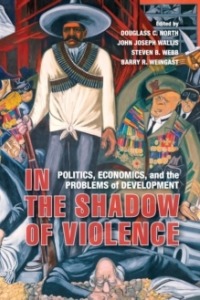
Liknande böcker
The Congress of Vienna in contemporary economic and political literature and in historiography
Bok av Jürgen Backhaus
After the Napoleonic attempt at imposing order in Europe which left the continent indisarray, the Congress of Vienna came up with an order which not only lasted for anextraordinarily long time, but also had the seeds of very deep conflicts, especially between Austria and Prussia. The book takes the bicentenary of the Congress of Vienna to look into particular aspects of the new order established among European major powers in the light of documents, contemporary writings and historiography. Some of the contributions discuss consequences of the Napoleonic wars which were felt far beyond 1815.ContentsJürgen Georg Backhaus, Günther Chaloupek, Hans Frambach: Introduction . F.L. vanHolthoon: The Congress of Vienna. Vom Stein, Humboldt, Metternich, and the 'Sattelzeit' . Günther Chaloupek: The Congress of Vienna and the emerging rivalry between Austria and Prussia for hegemony in Central Europe . Karl-Heinz Schmidt: Prussian reform politicians (Hardenberg, Humboldt and Stein) and German economists at the time of the Congress of Vienna . Hans Frambach: History of economic thought in the early 19th century: How the state of knowledge influenced the German representatives at the Congress of Vienna . Isabella Blank: The negotiations of the great powers at the Congress of Vienna in light of the SaxonCrisis . Robert W.J. Jansen: The concert of Europe and the secession of the Belgian Netherlands . Emmanouil M.L. Economou, Nicholas C. Kyriazis, Annita Prassa: From merchants to freedom fighters: The Greek navy 1800-1830 . Joachim Hennze: At a breathtaking pace. Impacts of the Vienna Congress on the traffic systems in Württemberg and Baden in the nineteenth century . Günther Chaloupek: The impactof the Napoleonic wars on the economy of the Habsburg monarchy: state bankruptcy and currency reform in Austrian economic literature . Hans Frambach: Concerning the forms and nature of national debt - The example of modernizing the Prussian financial system after the peace of Tilsit . Hans Frambach: European crisis - the case of the "Kingdom of Westphalia" . Günther Chaloupek: Economic depression after glorious victory - the Austrian economy in the post-Napoleonic era . AndriesNentjes: Metternich, the man who made Thonet







